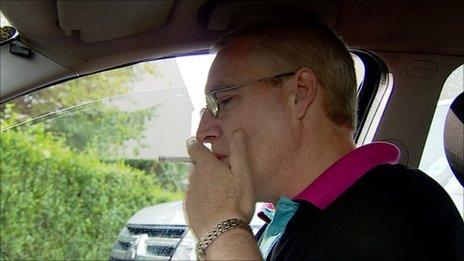Smoking bans cut asthma and premature births by 10%, study says
- Published

Smoking during pregnancy is not advised because it can damage the foetus
Laws banning smoking in public places have had a positive impact on child health, an international study in the Lancet suggests.
Researchers found a 10% reduction in premature births and severe childhood asthma attacks within a year of smoke-free laws being introduced.
A research team analysed 11 previous studies from North America and Europe.
The Royal College of Obstetricians and Gynaecologists said smoking bans benefitted adults and children.
'Clear evidence'
This is one of the first large studies to look at how anti-smoking laws in different countries and states are affecting the health of children living in those regions.
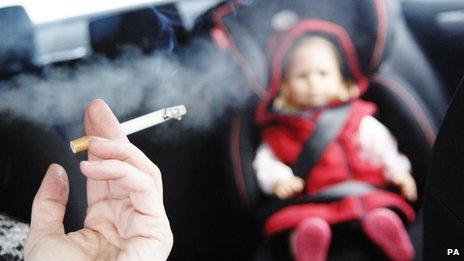
Ministers want to make it illegal for adults to smoke in cars carrying children
Laws that prohibit smoking in public places, such as bars, restaurants and workplaces, have already been shown to protect adults from the dangers of passive smoking.
In this study, researchers from the University of Edinburgh, Maastricht University, Hasselt University in Belgium, Harvard Medical School and Brigham and Women's Hospital looked at more than 2.5 million births and almost 250,000 hospital attendances for asthma attacks in children.
Dr Jasper Been, lead study author from the Maastricht University Medical Centre in The Netherlands, said the research on children under 12 was revealing.
"Our study provides clear evidence that smoking bans have considerable public health benefits for perinatal and child health, and provides strong support for WHO recommendations to create smoke-free public environments on a national level."
The study, external also found a 5% decline in children being born very small for their age after the introduction of smoke-free laws.
Co-author Professor Aziz Sheikh, of Brigham and Women's Hospital, in Boston, Massachusetts, and the University of Edinburgh, said there was potential to improve the health of more children.
"The many countries that are yet to enforce smoke-free legislation should in the light of these findings reconsider their positions on this important health policy question."
Previous research suggests that 40% of children worldwide are regularly exposed to second-hand smoke, which has been shown to be a cause of respiratory disease and a trigger for asthma attacks in children.
Recent European research also showed that passive smoking causes thickening of children's arteries which can increase the risk of heart attacks and strokes in later life.
Experts say children are particularly vulnerable to the negative effects of second-hand smoke because their lungs and immune systems are still developing.
At present, 16% of the world's population is covered by smoke-free laws.
Scotland introduced a ban on smoking in enclosed public places in 2006, and England in 2007.
Commenting on the study, Professor Ronnie Lamont from the Royal College of Obstetricians and Gynaecologists said the study provided further evidence that smoking bans had substantial health benefits for adults and children.
"Smoking during pregnancy has been shown to have adverse effects on foetal development and pregnant women need to be informed of the risks and should be offered advice and support to help them give up.
"It is important that healthcare professionals encourage women to lead a healthy lifestyle."
The Royal College of Obstetricians and Gynaecologists said it supported recommendations for further implementation of smoke-free environments.
'Gross overreaction'
A Department of Health spokesman said it wanted to build on the smoking ban by making it illegal for adults to buy cigarettes for children and to smoke in cars carrying children.
"We are also stopping tobacco being sold from vending machines and increasing the tax on tobacco and banning displays," it said.
But Simon Clark, director of the smokers' group Forest, said children tended to be exposed to second-hand smoke in the home, "so workplace smoking bans would have little or no impact on children".
"If the report is suggesting that environmental tobacco smoke is the only or principal cause of childhood asthma, that's ridiculous," he said.
"In the UK the number of people suffering from asthma has tripled in the last 40 years. During that same period the number of people who smoke has halved and today relatively few children are exposed to tobacco smoke in confined spaces such as homes and cars."
Mr Clark added that calling for more countries to introduce comprehensive smoke-free legislation was "a gross overreaction".
- Published25 March 2014
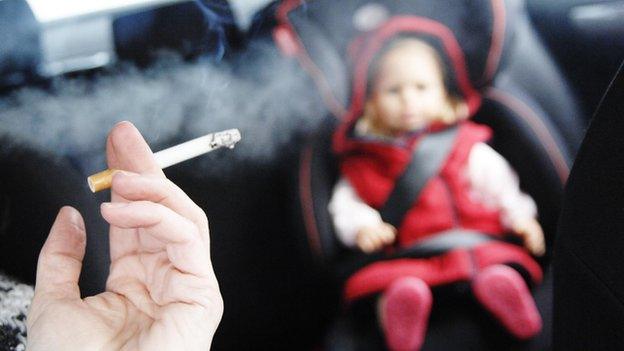
- Published5 March 2014
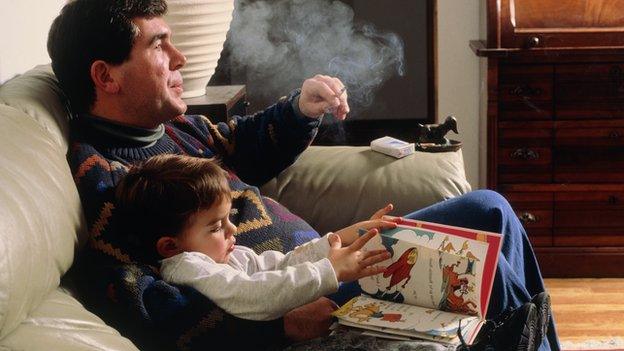
- Published21 January 2013

- Published7 February 2014
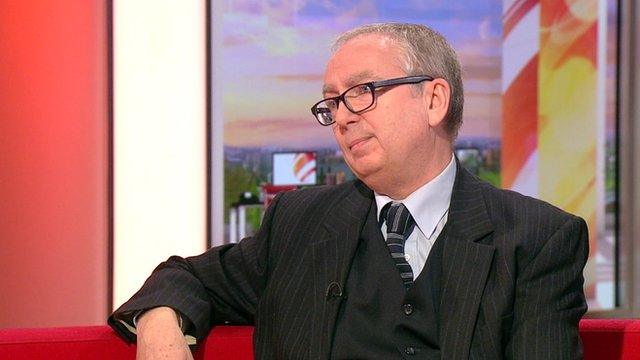
- Published6 September 2011
